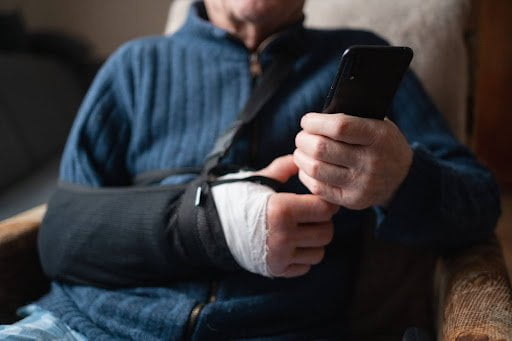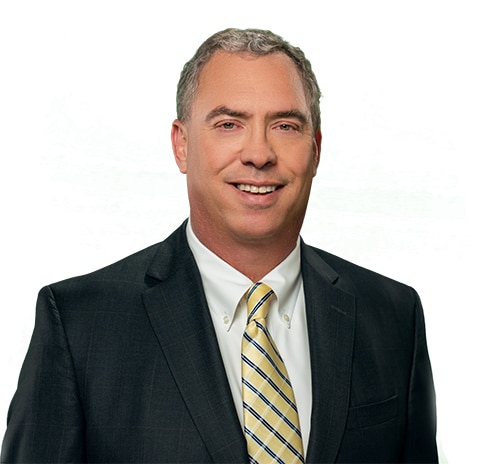
Short Answer:
An insurance adjuster is responsible for investigating claims, reviewing accident reports, examining medical records, and determining how much the insurance company will offer in a settlement. While they may appear helpful, their primary responsibility is to protect the insurance company’s bottom line by paying as little as possible. This often means questioning the extent of your injuries, asking for recorded statements, or pressuring you to accept a quick, low offer.
Because of this, accident victims should approach conversations with adjusters carefully. You are not required to speak directly with them, and doing so without guidance can put your claim at risk. Many people choose to work with professional and experienced personal injury lawyers in Alabama who can communicate with adjusters on their behalf, help ensure no damaging statements are made, and fight for the full and fair compensation they may be entitled to after an accident.
Key Takeaways
- Legal representation helps protect your claim and allows you to pursue fair compensation.
- Insurance adjusters work for the insurance company, not for you.
- Their goal is to minimize payouts, often through quick, low settlement offers.
- Adjusters may use tactics like requesting recorded statements or disputing injuries.
- You have the right to decline direct communication and let a lawyer handle it.
What Does an Insurance Adjuster Do?
An insurance adjuster is the person assigned by the insurance company to investigate and evaluate accident claims. Their main responsibility is to determine how much the insurance company should pay out, if anything, on a claim. This involves reviewing accident reports, speaking with witnesses, and examining medical records and property damage.
It’s important to remember that adjusters do not work for you—they represent the insurance company. Their goal is to minimize the company’s financial liability, which means they are focused on finding reasons to lower or deny your claim. While they may act friendly and supportive, they are trained to gather information that benefits the insurance company, not the injured person.
After an accident, the adjuster’s role is to gather evidence, assign a value to your losses, and negotiate a settlement. Understanding this dynamic helps you see why dealing with an adjuster carefully—or letting an attorney handle communications—is often the safest way to protect your claim.
Types of Insurance Adjusters
Insurance adjusters come in different forms, and the kind you deal with can affect how your claim is handled. The main categories include:
- Company (Staff) Adjusters: These adjusters work directly for the insurance company. Their job is to investigate claims and determine payouts, always keeping the insurer’s bottom line in mind.
- Independent Adjusters: Sometimes, insurance companies hire outside adjusters to help manage claims. Even though they are not employees, they still work on behalf of the insurance company and share the same goal—limiting what is paid out.
- Public Adjusters: Public adjusters are different because they work for the policyholder, not the insurance company. Their role is to review losses and negotiate a better outcome for the insured. These adjusters are usually involved in property or homeowner claims rather than personal injury cases.
What Claims Do Adjusters Handle?
No matter their title, adjusters often handle a wide range of claims, such as:
- Car accidents and vehicle damage
- Property damage from events like fires, floods, or storms
- Injury claims involving medical costs and long-term care needs
What Insurance Adjusters Look for After an Accident
When an insurance adjuster reviews a claim, they are focused on gathering information that allows the insurance company to control how much is paid out. Their investigation usually includes:
- Reviewing accident reports and evidence: Police reports, photos from the scene, and other documentation are used to piece together what happened and who might be at fault.
- Speaking with witnesses: Adjusters often contact people who saw the accident to confirm details or uncover statements that may limit the insurance company’s responsibility.
- Examining medical records and expenses: They carefully review your treatment records, bills, and diagnoses to decide whether your injuries match the accident and if your medical costs are reasonable.
- Assessing property damage and repair costs: For car accidents and other property claims, adjusters will estimate repair or replacement costs—often using company-preferred methods that undervalue damages.
The information collected is then used to shape the settlement offer. While the process may appear thorough, the adjuster’s ultimate goal is to reduce what the insurance company pays, not to ensure you receive the amount you may be owed.
Common Insurance Adjuster Tactics
Insurance adjusters are trained to use strategies that protect the insurance company’s profits. Some of the most common tactics include:
- Offering quick, low settlements: Adjusters may tempt you with fast cash soon after the accident. These offers are often far less than what your claim is actually worth and are designed to close the case before you know the full extent of your losses.
- Asking for recorded statements: By recording your answers, adjusters look for inconsistencies or comments they can use to weaken your claim. Even casual remarks can later be twisted to reduce your payout.
- Minimizing or disputing injuries: Adjusters may argue that your injuries are not as serious as reported, or suggest they were pre-existing. This helps them justify lowering the settlement amount.
- Pressuring you to sign a release: Signing a release can end your right to pursue additional compensation. Adjusters may push you to sign quickly before you understand the long-term costs of your accident.
Each of these tactics is designed to reduce the amount the insurance company pays, which is why it’s risky to handle adjusters alone. Having an attorney speak on your behalf can prevent these strategies from undermining your claim.
How To Deal With an Insurance Adjuster
Talking to an insurance adjuster after an accident can be stressful, and what you say—or don’t say—can directly affect your claim. Here are some guidelines to help protect yourself:
- Be careful with what you say during calls: Adjusters often ask friendly-sounding questions, but their goal is to gather statements that may weaken your case. Keep your answers brief, stick to basic facts, and never guess about details like how the accident happened or how badly you are injured.
- Don’t accept the first offer: Early settlement offers are almost always lower than the true value of your claim. Insurance companies hope you’ll take the money quickly before realizing the full costs of your medical bills, lost wages, or long-term recovery.
- Avoid recorded statements: Adjusters may request to record your conversation. This gives them an opportunity to pick apart your words later to minimize or deny your claim. You have the right to refuse a recorded statement, and in most cases, it’s best not to agree to one.
By keeping these points in mind, you can avoid common mistakes that cost accident victims money. Many people choose to have an attorney handle all communication with adjusters to help ensure nothing is said that could harm the claim.
When To Tell the Adjuster: “Please Talk to My Lawyer”
If an adjuster starts asking detailed questions, pressing for a recorded statement, or pushing you to settle quickly, that’s the time to stop the conversation. You are never required to deal with an adjuster on your own. By directing them to speak with your lawyer, you protect yourself from making costly mistakes and help ensure your claim is handled with your best interests in mind.
Do You Have To Talk to the Insurance Adjuster?
After an accident, you might feel obligated to answer an adjuster’s calls or provide detailed information. The truth is, you are not required to handle these conversations yourself. You have the right to limit what you say—or avoid speaking with them altogether.
Letting an attorney handle insurance adjuster communication is often the safest option. Our lawyers know the tactics adjusters use and can prevent you from making statements that could harm your claim. This not only protects your rights but also helps ensure the settlement negotiations are based on the full value of your losses, not the insurance company’s attempts to reduce them.
Protect Yourself With Those Thumbs Up Guys®
You don’t have to face insurance adjusters alone. At Floyd Hunter Injury Law, our team steps in to handle all communication and negotiation on your behalf. We know the tactics adjusters use, and we work to make sure they don’t take advantage of you.
By having us on your side, you can focus on your recovery while we pursue the compensation you may be entitled to for your injuries, medical bills, lost wages, and other damages.
The Thumbs Up Guys® are ready to fight for you. Contact us today for a free consultation and learn the next steps in protecting your claim.




